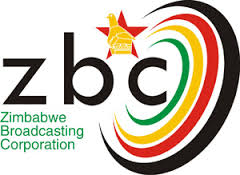On 27 July, a panel discussion ‘Infrastructural Development, Innovation and Comfortable Urban Environment’ was held as part of the business programme of the Russia–Africa Economic and Humanitarian Forum in the area of ‘Cooperation in Science and Technology’.
The following participants joined the session: Nikita Stasishin, Deputy Minister of Construction, Housing and Utilities of the Russian Federation; Yury Grishan, Mayor of Magadan; Joy Makumbe, Permanent Secretary, Ministry of National Housing and Social Amenities of the Republic of Zimbabwe; Tafadzwa Muguti, Secretary of the Administration of the President of the Republic of Zimbabwe for Provincial Affairs and Devolution for Harare Metropolitan Province; Desmond Boateng, Chief Director, Ministry of Railways Development of the Republic of Ghana, and others. Zhanna Tolstikova, Director General, TV BRICS, moderated the session.
As part of the discussion, experts spoke about best practices in infrastructure development. For example, Nikita Stasishin, Deputy Minister of Construction, Housing and Utilities of the Russian Federation, shared the experience of the construction sector in Russia with the discussion participants. In particular, he drew attention to the fact that “today Russian developers compete not with the cost per square metre, but with the quality of the project.” This implies, among other things, the creation of a comfortable environment during the integrated development of the territory.
Mr Stasishin said, “On the instructions of the President, an infrastructure menu was launched. This is a huge amount of funds that go towards modernizing engineering, transport, utilities and social infrastructure.”
At the same time, the Deputy Minister noted the need for a scientific approach to the development of territories: “We have created a huge scientific base with technical solutions for the development of both agglomeration of million-strong cities and single-industry and small towns. This is something we could share with African countries.”
Joy Makumbe, Permanent Secretary, Ministry of National Housing and Social Amenities of the Republic of Zimbabwe, has outlined how Zimbabwe is addressing the issue of migration from rural to urban areas.
“This process is happening much faster than the housing sector planning. We have put in place programmes to enable urbanization of rural areas, and we are developing rural areas,” said Ms Makumbe.
Tafadzwa Muguti, Secretary of the Administration of the President of the Republic of Zimbabwe for Provincial Affairs and Devolution for Harare Metropolitan Province noted the peculiarities of the province in terms of transport infrastructure development and spoke about the prospects for cooperation with Russia in this area: “One of the opportunities to improve transport infrastructure is to intensify partnership relations with the Russian Federation. Through cooperation with Russian cities, we could create new master plans for the development of municipalities.”
Full-fledged urban development is not possible without the construction of an extensive infrastructure linking not only settlements within the country but also neighbouring countries. Desmond Boateng, Chief Director, Ministry of Railways Development of the Republic of Ghana, spoke about a large-scale railway construction project designed to connect West African countries.
He noted that the project involves the construction of more than 4,000 kilometres of roads: “We are ready to negotiate with the Russian private sector to find the best ways to create an effective mechanism for mutually beneficial cooperation within the framework of this large-scale project. Now 250 kilometres have been built, but when all the lines are built, the railway will provide links to Burkina Faso, Togo, Cote d’Ivoire, and other countries on the African continent.”
Heads of Russian cities also spoke at the event. Thus, the Mayor of Magadan Yury Grishan noted that public-private partnership plays a big role in the formation of urban infrastructure. “This contributes to the sustainable development of the city, and thus to the improvement of the quality of life of the citizens,” he said.
In turn, the Head of Rostov Alexey Logvinenko spoke about large-scale construction projects, including social infrastructure facilities. “It is impossible to implement many projects without a stable economy. We take into account global trends. And today we see great economic potential in cooperation not only with new regions of Russia but also with other countries. Platforms like the Summit are a good opportunity to establish new ties with foreign partners, which means new markets, jobs and additional budget revenues. I hope that the experience of Rostov-on-Don, the capital of the Southern Federal District, will be useful to both Russian and foreign municipalities,” said Alexey Logvinenko.
The Roscongress Foundation is the organizer of the Second Russia–Africa Summit and Economic and Humanitarian Forum.
Official website: summitafrica.ru




